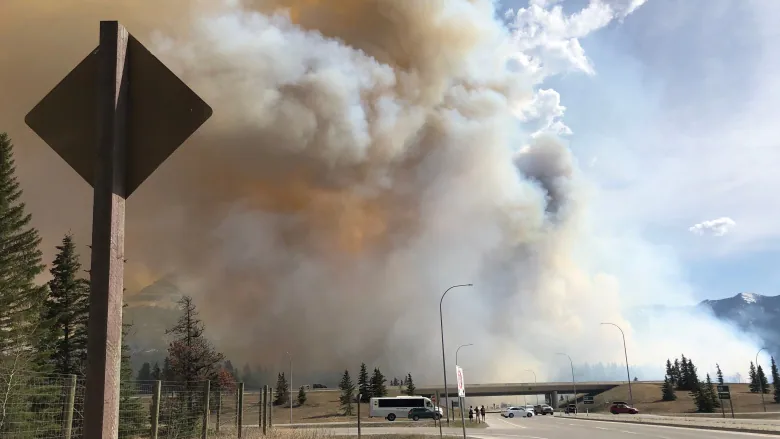On Sunday, extensive regions of eastern Ontario and the cottage country north of Toronto experienced air quality alerts as a result of ongoing forest fires in Quebec and Ontario.
Environment Canada issued an air quality statement encompassing significant portions of northern Ontario, along with the Peterborough area, parts of Georgian Bay including Parry Sound, and extending as far east as Ottawa. In addition, smog warnings were put in place for sections of Quebec adjacent to Ontario.
According to the special air quality statement, elevated levels of air pollution have arisen due to the smoke emanating from the forest fires. The area will continue to be impacted by smoke plumes originating from forest fires in Quebec and northeastern Ontario, leading to a deterioration in air quality. It’s important to note that air quality and visibility may fluctuate over short distances and can vary considerably from hour to hour due to wildfire smoke.
Residents in the affected areas were strongly advised to close their windows in order to maintain better indoor air quality. Additionally, individuals were instructed to wear masks whenever they were outdoors, if feasible. These precautions were recommended to help minimize exposure to the compromised air quality caused by the ongoing forest fires.
As Canada grapples with an exceptionally severe wildfire season, the influx of smoke exacerbates the situation.
According to the Ministry of Natural Resources and Forestry in Ontario, the northeast region of the province alone witnessed 29 wildfires on Saturday. Alarmingly, a significant portion of these fires, specifically 18 of them, remained uncontained.
In response to the escalating situation, the province recently announced the deployment of Mexican firefighters to aid in the ongoing battle against the blazes ravaging Ontario. Their assistance is aimed at bolstering the response efforts across the affected areas.
According to the statement, individuals with lung disease (such as asthma) or heart disease, older adults, children, pregnant individuals, and individuals who work outdoors are at a heightened risk of being affected by health issues arising from wildfire smoke.
To mitigate potential health effects, the statement advises individuals to cease outdoor activities and promptly seek medical assistance if they or someone under their care experiences symptoms such as shortness of breath, wheezing (including asthma attacks), severe coughing, dizziness, or chest pains. It further recommends staying indoors if feeling unwell and displaying any of these symptoms.
Public Health Sudbury and District echoed the Environment Canada statement on their public health website, emphasizing the importance of safeguarding oneself from the impacts of wildfire smoke. The health unit provides the following guidance in this regard:
- Avoid outdoor physical exertion.
- Stop, reduce, or reschedule strenuous outdoor activities.
- Keep airways moist by drinking plenty of water.
- Breathe through a warm, moist washcloth to help relieve dryness.
- Visit places with cleaner, filtered air, such as libraries or shopping malls.
- If the temperature is comfortable, keep windows closed indoors and in vehicles. Use the recirculation setting on air conditioners and HVAC systems to prevent smoke from entering. Once the outdoor air has improved, adjust the setting to bring in fresh air.
- Follow your health care provider’s advice about managing your condition.
- People who have asthma should follow their asthma management plan.



